South Korean investment gusto undeterred by pandemic blows
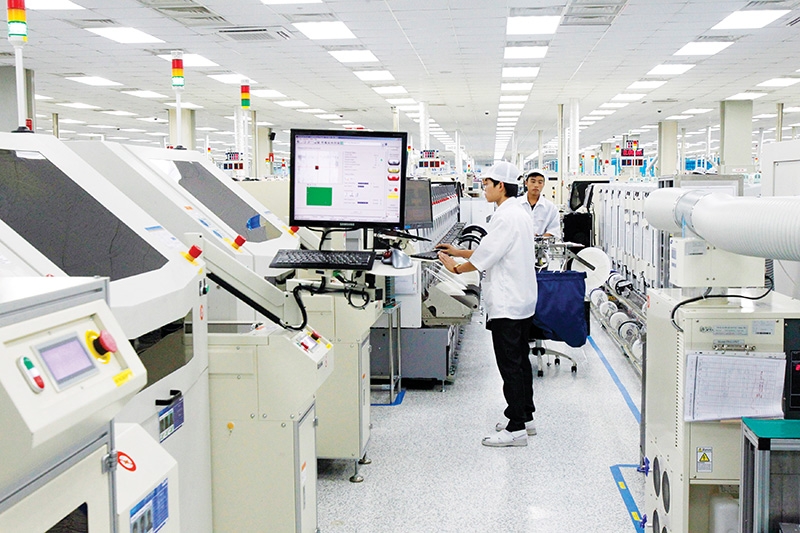 |
| South Korea has been the largest foreign investor in Vietnam, contributing greatly to socio-economic development. Photo: Le Toan |
At an online conference between the Vietnamese government and localities last week, Nguyen Van Tung, Chairman of Haiphong People’s Committee, said that the northern port city in particular is asking the government for approval to expand an industrial zone to attract South Korea’s LG Group to increase its presence there.
LG Electronics, a subsidiary of LG group, said in a statement that the company is planning to move its plant in the south of Seoul to Haiphong, where other LG affiliates are operating factories. Accordingly, LG Electronics will boost the annual production capacity of its smartphone plant in Vietnam by 83 per cent to 11 million handsets from the second half of this year.
In 2015, LG Electronics inaugurated its largest factory in Southeast Asia in Haiphong with an area of 800 hectares and the total investment of $1.5 billion to produce and assemble major products such as digital devices for cars, mobile phones, washing machines, TVs, air conditioners, and vacuum cleaners.
Meanwhile, on the sideline of last week’s “Meet Korea 2020” event in Hanoi, which gathered over 450 representatives of South Korean companies operating in Vietnam and 50 provincial authorities, Nguyen Duc Trung, Chairman of Nghe An People’s Committee, told VIR, “Many South Korean enterprises at the event had expressed their interest in the locality. We have received many questions related to infrastructure, land lease, and other administrative procedures.”
During his official visit to South Korea last November, Vietnam’s Prime Minister Nguyen Xuan Phuc met with leaders of many South Korean big groups such as Samsung, Hyundai, GS E&C, GS Energy, CJ, Lotte, Hyundai, Hana, Hanwha, Hyosun, LG who expressed wishes to expand investment in Vietnam.
Kisun Chung, senior vice president at Hyundai Heavy Industries Co. Ltd. said that Hyundai was making surveys in Vietnam to seek opportunities in the sectors of shipbuilding and energy.
Meanwhile, GS E&C’s president Michael Huh said that GS E&C was looking for opportunities to expand investment in projects about production, construction, and road infrastructure. Currently GS E&C is engaging in construction of the Metro line 1 in Ho Chi Minh City and is expecting to join the line 2 project.
Demand-supply match-up
Working in Vietnam for several years, Byun Jum Seok, director of Hyundai Construction Equipment Vietnam, told VIR that despite entering Vietnam for only a short time, his company has witnessed positive growth and is planning for expansion. “We have planned to set up a company specialised in selling and manufacturing excavators with a sales office located in a central province to facilitate the export of goods,” Seok said. “Meanwhile, the factory to produce parts and machinery will be located in the north because the region has a strong demand for spare parts and machines than elsewhere.”
According to Seok, in general, Vietnam has been an attractive investment destination for South Korean investors thanks to its long coastline with many seaports which are convenient for exporting goods to the United States and Europe. “However, we need to find out which localities are the most suitable for us,” he said.
Tran Hai Linh, chairman of the Vietnam Korea Business and Investment Association, said that lining up demand and supply is important and requires clarity. “From introducing potential to taking investors into the localities is a long journey. We are calling for investment and we should understand what South Korean investors’ needs and their development are, then show what we have along with actively meeting their demands,” Linh told VIR. “Nghe An, for example, is the key economic zone of the East-West Economic Corridor. We must point out what we have there and the logistics conditions, including warehouses, industrial zones, and seaports. Meanwhile, north-eastern provinces have a basis for green tourism and core technology.”
According to Linh, representatives of the Korean Chamber of Commerce and Industry, and the Korea Trade Investment Promotion Agency (Kotra) highly appreciate opportunities of investing in Vietnam’s localities. “They consider Vietnam as the centre of the China+1 trend, benefiting from rearranging value in the east of Asia during the ongoing pandemic. Vietnam is promoting digitalisation, manufacturing, and applying high technology, while South Korea is strong in these fields,” Linh said.
Meanwhile, highly appreciating the equal development of different localities in Vietnam, Hong Sun, vice chairman of the Korea Chamber of Business in Vietnam (KorCham) said that most overseas investors, including South Korean ones, unfortunately only knew about Hanoi, Ho Chi Minh City, and their neighbouring provinces.
However, now they are seeking out prospects in many more localities across the country. “Over the years, provinces in Vietnam have actively improved their competitiveness, while enterprises have high demand for expanding and relocating factories. The pandemic has also shown Vietnam to be a stable destination, so many South Korean investors are beginning to see the advantages of pouring money into other localities in Vietnam,” Sun said. “Each enterprise has its own conditions and demand. Meeting with localities will help us understand and identify their policies, specific potential, and hence decide to invest.”
According to Sun, authorities of 15 provinces have had direct promotional meetings with the South Korean ambassador to Vietnam and representatives of KorCham and Kotra. “This has illustrated their wishes of getting to know the demand of South Korean investors. They also promised facilitation for their enterprises to invest in. We are sure there will soon be many new projects from South Korea in Vietnam,” Sun reaffirmed.
Key partner of Vietnam
Thus far, South Korea has been the largest foreign investor in Vietnam with the total accumulated registered capital of around $70 billion, with more than 8,000 projects creating jobs for over 700,000 workers in many cities and provinces across the country. South Korea consumes 30 per cent of Vietnam’s total export value, becoming Vietnam’s second-largest trading partner.
Two-way trade turnover reached $66.6 billion last year and $29.6 billion in the first half of 2020, down from $32.1 billion in the same period last year. Both nations are striving to soon bring this figure to $100 billion over the next few years.
South Korea is also Vietnam’s second-largest tourism partner market, with about 4.2 million tourists coming to Vietnam last year, while nearly 800,000 Vietnamese people visited South Korea at the same time.
“Vietnam is a key partner in the New Southern Policy of South Korea, with co-operation between the two countries achieving many practical results in various fields,” said Bui Thanh Son, Deputy Minister of Foreign Affairs. “In particular, economic co-operation is always an important pillar and a bright spot in the relation between the two countries.”
Meanwhile, Kim Ki-joon, general director of Kotra Hanoi, said that despite decreasing investment flows, bilateral trade, and export scale from South Korea due to COVID-19 in the first six months of this year, Vietnam and South Korea are still looking forward a fruitful partnership.
“The effects of the coronavirus have helped to promote the digital economy, creating energy and bringing us opportunities of co-operation in e-government, smart factories, and smart cities. Vietnam and South Korea are looking forward to becoming production bases with the highest capacity in both Northeast and Southeast Asia,” Ki-joon said.
According to Ki-joon, with a large amount of free trade agreements and an excellent performance in pandemic prevention, Vietnam has been a country with new drivers of growth which could become the best destination for overseas investors after the health crisis subsides, and after the worst of the US-China trade dispute passes.
Meanwhile, as the number one investor in Vietnam and a powerful country in advanced manufacturing, South Korea can further co-operate with Vietnam to create outstanding development in the country with even more investment.
| Baek In Sub - CEO, Kaps Tex Vina
After years of doing business in Vietnam, I appreciate that the country has been very open and welcoming to foreign investment through stimulating activities. While some other parts of the world are still struggling to cope with the outbreak, Vietnam appears as a safe and stable country. Vietnamese people are hard-working and always try to do their best at their job and show a good attitude. I also find that the quality of the labour force in Vietnam has improved. We are considering investing more and expanding to other provinces in Vietnam. I hope that there will be better co-operation between the government and businesses so that foreign investors can do business here more easily. We also expect more open and transparent regulations and policies, especially in terms of administrative procedures. Park Jong Hyun - CEO and founder, NTP-TECH JSC
I invest in my business in Vietnam because of the experience I have with the people here. I find that people here are trustworthy, and Vietnam is a safe place. Global supply chains need stable mobility and services, and that’s why we came up with a platform, providing sharable cars and drivers for corporates. My target is to provide safe and better mobility leasing services with lower costs than the existing incumbent in the market. Procedures, contracts, and other paperwork are still complicated here after many years. Despite that, I have never encountered any unreasonable incident during my 10 years working in Vietnam. However, Vietnam’s social overhead is not yet equivalent to other advanced countries for small- and medium-sized enterprises. They have faced many difficulties such as high bank interest rates. Nevertheless, Vietnam remains a market with exponential development, so it is a good time to invest. To facilitate foreign direct investment, I recommend one thing to be considered for technology transfer or propagation into Vietnam, which is a personal tax incentive for a high-skilled person from abroad. Vietnam wishes for more technology transfer, which means that the country should invite high-quality engineers with excellent tech skills. Park Tae Jun - Team leader of flooring sales, Dongwha Vietnam
Before entering the Vietnamese market, Dongwha had more than 70 years of development in South Korea. Dongwha Vietnam already has a factory in Binh Phuoc province and is currently building a second factory in Thai Nguyen province over an area of 50 hectares. Like other South Korean companies, Dongwha is focusing on Hanoi and Ho Chi Minh City. However, investing in these two markets is challenging so we are considering developing in the provinces around these two big cities. Next March we will put the first batch of items into production when the factory is completed. We hope that Dongwha’s flooring products will not only supply Vietnam’s market but also are exported to other markets like North America and Southeast Asia. Lee Jong Kook - CEO, JK Partners
Regarding future potential co-operation between Vietnam and South Korea in terms of both trade and investment, it will be in a good situation for the recovery of trade volume from mutual countries after COVID-19, and for businesses, role-sharing with business participants from both countries will be important. Smart city development, tourism, high-tech agriculture, medical engineering, the bio-industry, healthcare, and food and beverages are just some of the more promising sectors for such investment. While South Korean companies mainly have enough project managers with experienced know-how, high-level engineers, financing arrangements, and management skill, and that these are strong points for South Korean companies, it is the best combination to role-share because of the comparatively weaker points of Vietnamese companies. Nguyen Van Nhung - Director, LG Electronics Vietnam
As a companion of LG Group in Vietnam, LG and other South Korean businesses are working hard to co-operate with the governments of the two sides to have an extensive and long-term investment plan in Vietnam. In fact, before the pandemic, the tourism and resort industry in Vietnam was very appealing to investors from South Korea. However, even now many foreign production lines are promising to enter Vietnam, so manufacturing will be a strength to attract investment in Vietnam. Nghe An province in particular, along with other central provinces, are currently attractive to investors from South Korea. The reason is that these localities have certain advantages in both road and waterway transportation and also have many policies to attract South Korean investors. Now, we are investing in a project in Haiphong city and the group’s subsidiaries are also planning to survey and invest in some central provinces in near future. |
What the stars mean:
★ Poor ★ ★ Promising ★★★ Good ★★★★ Very good ★★★★★ Exceptional
Related Contents
Latest News
More News
- VNPAY and NAPAS deepen cooperation on digital payments (February 11, 2026 | 18:21)
- Vietnam financial markets on the rise amid tailwinds (February 11, 2026 | 11:41)
- New tax incentives to benefit startups and SMEs (February 09, 2026 | 17:27)
- VIFC launches aviation finance hub to tap regional market growth (February 06, 2026 | 13:27)
- Vietnam records solid FDI performance in January (February 05, 2026 | 17:11)
- Manufacturing growth remains solid in early 2026 (February 02, 2026 | 15:28)
- EU and Vietnam elevate relations to a comprehensive strategic partnership (January 29, 2026 | 15:22)
- Vietnam to lead trade growth in ASEAN (January 29, 2026 | 15:08)
- Japanese business outlook in Vietnam turns more optimistic (January 28, 2026 | 09:54)
- Foreign leaders extend congratulations to Party General Secretary To Lam (January 25, 2026 | 10:01)

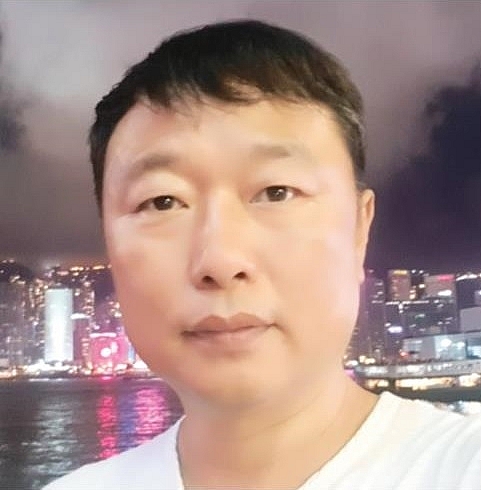
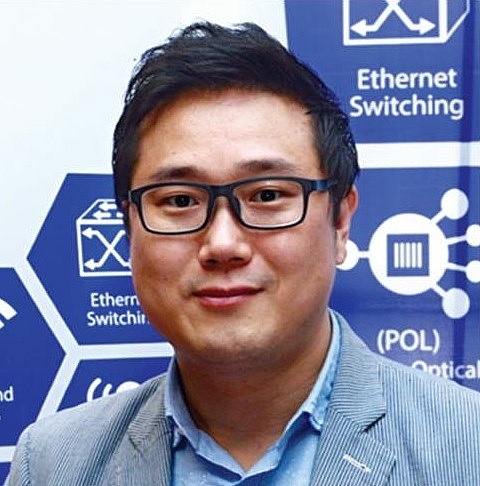
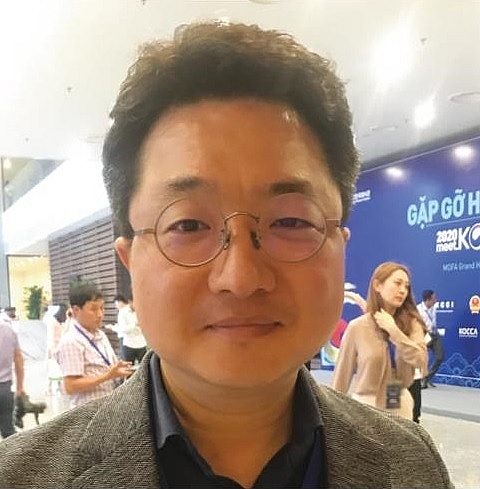
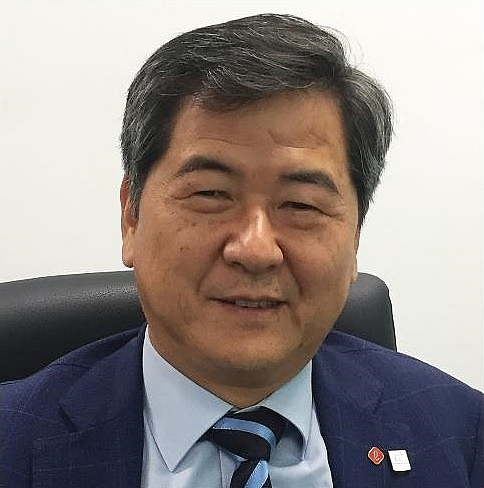
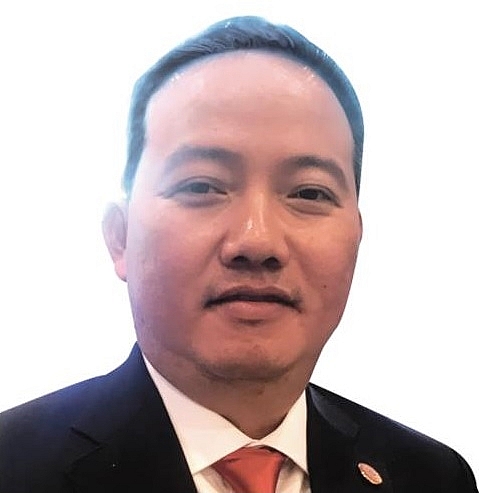
 Tag:
Tag:




















 Mobile Version
Mobile Version